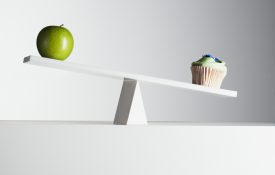-

Apple or Ice Cream? The Mechanics of a Healthy Choice
You’ve been trying to lose some weight, but you also get hungry for a snack in the evening. So imagine you go to the kitchen to check out your options, and you find apples and Visit Page
-
Breaking the rules — and feeling good about it
I once worked for an organization that required a fair amount of business travel. I had a colleague who, for medical reasons, had to eat frequent, small meals. But when he submitted his expense report itemizing these meals, the company returned it to him, disapproved. He was told that the company would only reimburse for three meals per day. My colleague re-submitted his expense report a few days later, claiming only three meals a day. But the report also specified various incidental expenses that had not appeared before—gratuities, bus fares, pens and notebooks. The bottom line was unchanged. What changed was the integrity of the expense report.
-
The Graying of Trauma: Revisiting Vietnam’s POWs
The Vietnam War was still raw in the collective American memory when the award-winning 1978 film The Deer Hunter brought home the horror of the POW experience. The film tells the story of three young men from Pennsylvania—Mike, Nick and Steven—who ship off as patriotic and gung-ho soldiers. They are captured during a firefight and endure physical deprivation and chilling psychological torture at the hands of the enemy. With the war’s end, they try to pick up the pieces of their lives, but all three are psychologically damaged. This is not surprising, given the ordeal they survived—the brutality, the threats, the intimidation and uncertainty.
-
Do We Have an Internal Calorie Counter?
Many explanations have been offered for the country’s obesity epidemic, and one is nutritional ignorance. People simply don’t know what a calorie is, so how can they be expected to know a calorie-rich food when they see one? Most of us don’t even know what a gram of apple or an ounce of milk looks like, so how can we possibly calculate a sensible portion? Well, perhaps arithmetic is not required, and it may even be misleading. Psychological scientists in Canada have been studying how people make food choices, and it appears that our deliberate estimates and calculations may not be much use to us. Instead, we may implicitly know how fattening foods are, even when our estimates are way off.
-
Wealth, Welfare and the Brother-In-Law Rule
One of the enigmas of the American political landscape is the impoverished Republican. This is the American with very little money, and many unmet needs, who nevertheless votes for people and policies that will deny him or her assistance. Indeed, many of the reddest states in the nation—those whose leaders want to gut the state’s welfare programs—are among the largest beneficiaries of government aid. This makes no sense. With economic inequality at a historic high, why would so many Americans want to cut spending on social services targeted specifically for them?
-
Labors Lost? Memories of Childbirth
I’m told, by women I trust, that childbirth is an experience unlike any other. These women have vivid and enduring memories of labor and birth, becoming a mother, giving life. They recall the event as profound and magical and life-changing—and also very painful. Nobody questions the physical intensity of labor and childbirth, but how do we know how painful the experience really is? Does recall—especially months and years later—accurately reflect the experienced pain? This is not just an academic question. Mothers’ lasting feelings about the experience of childbirth—good or bad—are closely tied to remembered pain.

